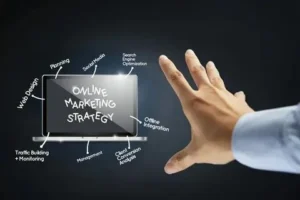Key Takeaways
- Biotech Transformations: Discover the groundbreaking advancements in biotechnology and their impact on healthcare.
- Real-Life Applications: Learn how biotech innovations are used to diagnose and treat diseases.
- Future Trends: Stay informed about the latest trends and potential future applications in the biotech industry.
- Supportive Research: Explore data-driven insights and expert opinions on the evolution and significance of biotech in medicine.
Introduction
Biotechnology continues to revolutionize the healthcare landscape by providing innovative solutions for disease detection, treatment, and sustainable health solutions. As we move forward in the 21st century, the rate at which these technologies evolve is astonishing, promising a brighter future for medical science. One of the cutting-edge research fields is AI drug discovery, which holds profound implications for the speed and efficacy of developing new treatments. AI-driven solutions are transforming traditional drug discovery processes, making them faster and more accurate.
Advancements in Biotech
Recent advancements in biotechnology have opened up new avenues for medical research and treatment. Innovative diagnostic tools and groundbreaking therapies have surfaced, altering how healthcare professionals address diseases. For example, according to Nature News, strides in technologies such as CRISPR and synthetic biology are pushing the boundaries of what is possible in medicine. CRISPR gene editing, for instance, allows scientists to alter DNA with unprecedented precision, enabling targeted treatments for genetic disorders.
Additionally, developments in synthetic biology have led to the creation of bioengineered tissues and organs, which could soon solve the organ donor shortage. These advances are not just theoretical; clinical trials and initial applications already show promising results, hinting at a future where biotechnological innovations will be commonplace in clinical settings.
Biotech and Disease Detection
The role of biotechnology in disease detection cannot be overstated. Techniques such as CRISPR and next-generation sequencing have drastically improved our ability to detect genetic anomalies at an early stage. These advancements have made it possible to diagnose diseases more accurately and quickly, potentially saving countless lives. Early detection through these advanced methodologies enables more effective preemptive treatments, giving patients a better chance at survival and improved quality of life.
For example, liquid biopsies, which use biomarkers found in blood, offer a less invasive method for detecting cancers and other diseases. This technique can detect cancer at much earlier stages compared to traditional methods, significantly improving the chances of successful treatment. Integrating AI and machine learning techniques to analyze massive amounts of genetic data further streamlines and enhances diagnostic processes.
Therapeutic Applications
Biotechnology has also made significant strides in developing therapeutic applications. These innovations, from gene therapy to personalized medicine, pave the way for more effective and individualized treatments. For instance, monoclonal antibodies have transformed the treatment of autoimmune illnesses and chronic diseases like cancer. These therapies are designed to attack specific components of diseases, resulting in fewer side effects and more targeted efficacy.
Gene therapy involves modifying the patient’s genetic material to treat or prevent disease. This revolutionary approach can cure diseases caused by genetic mutations, offering hope to millions. On the other hand, personalized medicine tailors treatments based on an individual’s genetic makeup, lifestyle, and environment. This method guarantees that patients receive the best treatments with the fewest side effects possible, improving therapy.
Biotech in Genomics
Genomics is another area where biotechnology has shown tremendous potential. By sequencing entire genomes, researchers can better understand the genetic underpinnings of various diseases. This has led to the development of targeted therapies and personalized treatment plans tailored to an individual’s genetic makeup. The information from genomic sciences helps identify genetic risk factors, contributing to preventive strategies and early interventions.
Genomic data is invaluable for understanding hereditary diseases and developing new therapeutic approaches. For instance, whole-genome sequencing can identify mutations responsible for rare genetic disorders, enabling targeted interventions. This capability also extends to more common diseases, such as cancer, where genomic analysis can reveal specific mutations driving tumor growth, guiding the development of effective, personalized treatment plans.
Sustainable Health Solutions
Biotech also plays a crucial role in offering sustainable health solutions. For example, lab-grown organs and tissues could soon become a reality, eliminating the need for organ donors. Developing biodegradable implants and sustainable biopharmaceuticals could also significantly reduce healthcare’s environmental impact.
Another promising area is the use of bioplastics in medical devices and packaging. Bioplastics are biodegradable and made from renewable materials, reducing the environmental footprint of healthcare products. Sustainable biopharmaceutical production methods, such as using plant-based systems for drug production, are being explored to minimize environmental impact and increase accessibility, especially in low-resource settings.
Ethical Considerations
With the rapid advancements in biotechnology, ethical considerations are becoming increasingly important. The use of genetic editing tools, data privacy, and the potential for ‘designer babies’ are some of the moral dilemmas that need addressing. Policymakers and scientists must collaborate to create regulations that guarantee the responsible use of these technologies. Ethical frameworks can help navigate the complexities arising from such profound capabilities.
For example, the gene editing discussion raises concerns about unforeseen repercussions and the possibility of genetic discrimination. Ensuring informed consent and maintaining transparency in biotech research are essential to addressing these concerns. Furthermore, genetic data might disclose sensitive information about a person’s health and lineage, making data privacy even more important. Policymakers must establish stringent data protection regulations to prevent misuse and maintain public trust.
Future Prospects
Looking to the future, the possibilities in biotechnology are almost limitless. From AI-driven drug discovery to the potential of nanomedicine, the next decade promises to bring about even more revolutionary changes. Keeping abreast of these innovations will be essential for healthcare professionals leveraging new technology to improve patient outcomes. Integrating AI and machine learning in various biotech applications is expected to streamline processes and usher in a new era of medical advancements.
Nanomedicine, for example, involves using nanoscale materials for drug delivery and diagnostics, promising greater precision and efficacy. AI and big data analytics could revolutionize predictive medicine, allowing for early intervention and personalized treatment plans based on real-time data. These prospects highlight biotechnology’s potential to enhance healthcare outcomes and make medical practices more efficient and responsive to individual patient needs.








